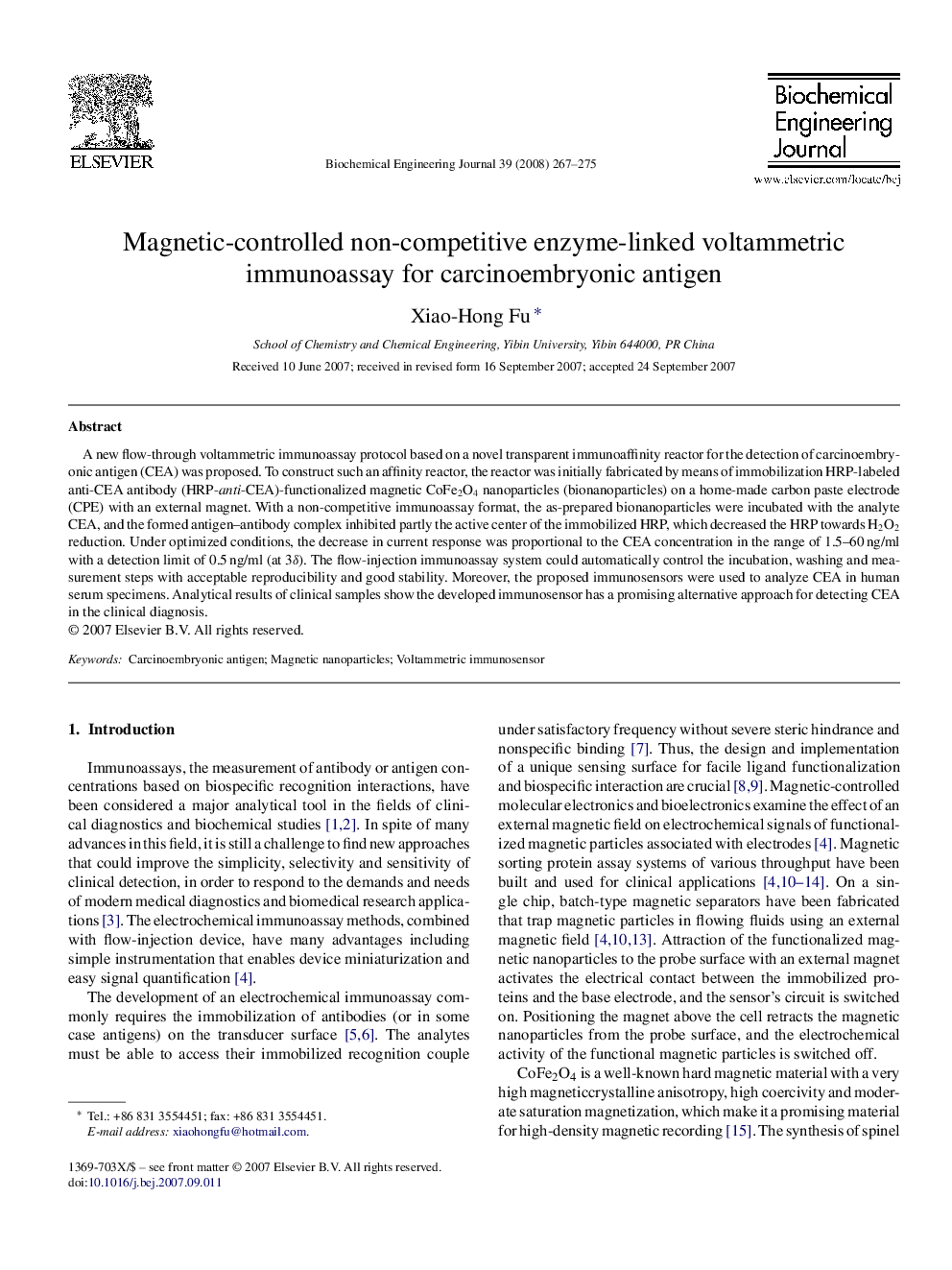| Article ID | Journal | Published Year | Pages | File Type |
|---|---|---|---|---|
| 4625 | Biochemical Engineering Journal | 2008 | 9 Pages |
A new flow-through voltammetric immunoassay protocol based on a novel transparent immunoaffinity reactor for the detection of carcinoembryonic antigen (CEA) was proposed. To construct such an affinity reactor, the reactor was initially fabricated by means of immobilization HRP-labeled anti-CEA antibody (HRP-anti-CEA)-functionalized magnetic CoFe2O4 nanoparticles (bionanoparticles) on a home-made carbon paste electrode (CPE) with an external magnet. With a non-competitive immunoassay format, the as-prepared bionanoparticles were incubated with the analyte CEA, and the formed antigen–antibody complex inhibited partly the active center of the immobilized HRP, which decreased the HRP towards H2O2 reduction. Under optimized conditions, the decrease in current response was proportional to the CEA concentration in the range of 1.5–60 ng/ml with a detection limit of 0.5 ng/ml (at 3δ). The flow-injection immunoassay system could automatically control the incubation, washing and measurement steps with acceptable reproducibility and good stability. Moreover, the proposed immunosensors were used to analyze CEA in human serum specimens. Analytical results of clinical samples show the developed immunosensor has a promising alternative approach for detecting CEA in the clinical diagnosis.
